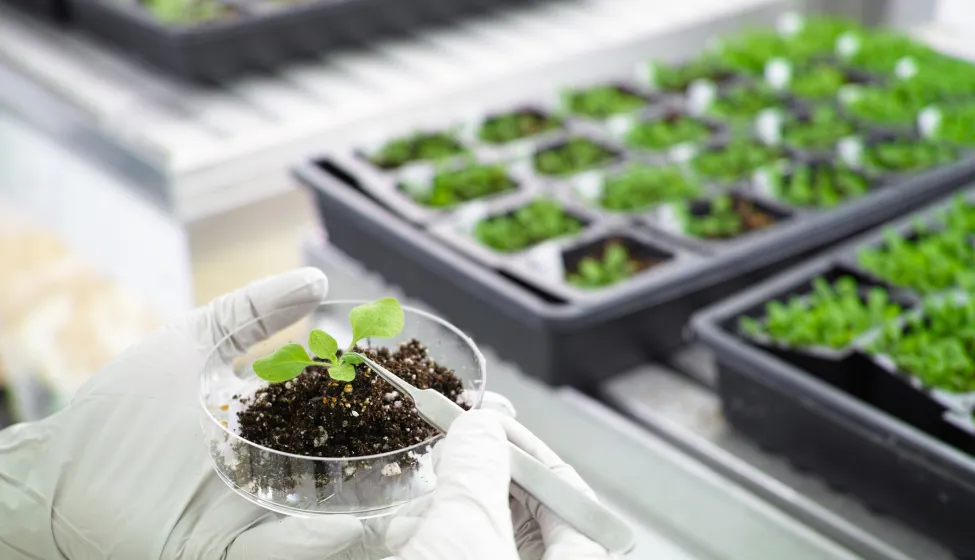June 11, 2025
The U.K.'s Precision Breeding Regulations provide a regulatory framework for agricultural and biotech companies developing precision bred organisms
The U.K. Department for Environment, Food, and Rural Affairs (DEFRA) has announced the signing into law of the Genetic Technology (Precision Breeding) Regulations 2025, applicable only in England, making it the first European country to establish a clear, science-based regulatory pathway for precision bred plants.
DEFRA Minister Daniel Zeichner MP enacted this secondary legislation in May 2025, implementing the Genetic Technology (Precision Breeding) Act 2023 and creating a streamlined framework for regulatory approval for plant precision bred organisms (PBOs).
A new authorization process for precision bred organisms
PBOs are gene-edited organisms that could have been achieved through traditional breeding methods or natural processes. Unlike genetically modified organisms (GMOs), they do not contain genetic material foreign to that species. They have the potential to improve food production and nutritional value, as well as climate, pest, and disease resiliency.
The regulations introduce a two-tier authorization process that replaces the lengthy procedures inherited from EU genetically modified organism legislation. Under this new system, businesses must first apply to DEFRA for a marketing notice, followed by application to the Food Standards Agency (FSA) for food and feed marketing authorization. This approach aligns England's regulatory framework with countries like Canada, Australia, Brazil, Argentina, the U.S., and Japan, positioning the U.K. as a leader in agricultural innovation outside the EU regulatory sphere.
Implications of the U.K. precision breeding regulations
Key takeaways related to the U.K.'s precision breeding act include the following.
- Only applies to plants: Animals and microorganisms are currently excluded, though policy work continues on animal welfare frameworks and separate primary legislation for microorganisms.
- Only applies to England: While the act establishes a regulatory system exclusively for PBOs marketed in England, it poses implications for the entire U.K. food chain, in accordance with the United Kingdom Internal Market Act 2020.
- Regulatory framework: The two-tier system establishes proportionate safety assessments based on risk levels. Criteria involving novelty, composition, history of safe food use, and toxicological and allergenic safety concerns will be used to determine whether a product falls into Tier 1 (requiring a less substantial evaluation) or Tier 2 (requiring an enhanced safety assessment and FSA scrutiny).
- Global context: This regulatory change reflects the broader global trend toward deregulating Site-Directed Nuclease-1 (SDN-1) edited organisms. National regulators are increasingly recognizing that precise genetic modifications indistinguishable from natural mutations should not face the same regulatory burden as traditional GMOs and that products derived from gene-edited organisms should be evaluated on end product safety rather than the processes used to create them.
Impact for agricultural and biotech companies
The Precision Breeding Act regulations face alignment challenges both domestically and internationally. The England-only scope of the regulations creates internal market fragmentation, requiring continued dialogue with devolved administrations to manage research collaboration and trade implications.
More significantly, the May 2025 U.K.-EU summit agreement of dynamic alignment for agrifood products may require the U.K. to align with EU standards once final arrangements are established. This could potentially slow market access and create uncertainty around the deregulatory approach initially envisioned. The European Parliament's proposal to ban patent rights for gene-edited plants adds further uncertainty to intellectual property considerations.
The legislation represents a transformative shift for multiple sectors within the agrifood system. Plant breeders and biotech companies now have access to a faster, more proportionate route to market, providing greater confidence for scaling innovation and commercial implementation. The framework particularly benefits small- and medium-sized enterprises in the agribiotech sector, who previously faced prohibitive regulatory barriers. The regulations could potentially stimulate increased research and development activity in plant science as well.
Full implementation and first applications for these regulations are expected in late 2025, with authorized food products derived from PBOs potentially reaching English supermarket shelves as early as late 2026.
What Can We Help You Solve?
Exponent's multidisciplinary consultants have extensive experience helping clients navigate regulatory requirements for genetically engineered organism production and marketing. We support risk assessments and FSA and EFSA product dossier submissions, including data requirement guidance for Tier 1 and Tier 2 PBO applications (history of safe food use, composition, and allergenicity and toxicological risk assessment).

Food Safety & Nutrition Regulatory Support
From risk assessment to product recall, Exponent scientists provide support on critical safety and regulatory challenges.

Agrochemicals & Pesticides
Navigate complex requirements for agrochemicals and pesticides in Europe and North America.
![Food, Beverage & Packaging [PSMC]](/sites/default/files/styles/cards_home_card/public/media/images/GettyImages-982394848.jpg.webp?itok=6BKznsai)
Product Development for Food & Beverages
Technical and regulatory services to support product development efforts for new food, beverages, and dietary supplements.
![Biocides [CRFS]](/sites/default/files/styles/cards_home_card/public/media/images/GettyImages-1278640196.jpg.webp?itok=g5xMzJHv)
Agrochemicals in Europe
Support across the overall product and process lifecycle related to placing plant protection products and fertilizers on the EU market.
![[EBS] Ecological & Biological Sciences - Environmental Risk Assessment - grey heron grazing in fresh water](/sites/default/files/styles/cards_home_card/public/media/images/grey-heron-2022-01-04-23-54-37-utc%281%29_0.jpg.webp?itok=5EB0lXjA)
Environmental Risk Assessment
Risk assessments for legacy spills and contamination, potential project and product impacts, and environmental remediation support.
![Consumer Products [PSMC]](/sites/default/files/styles/cards_home_card/public/media/images/GettyImages-171366863.jpg.webp?itok=0YQ9vN1U)
Food
Food safety, nutrition, and dietary exposure assessments, and technical and regulatory support.





